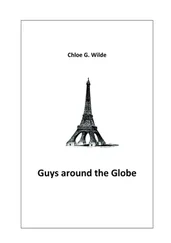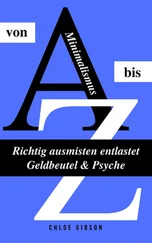The flat smelled of gunpowder and candyfloss, as if a clown had just departed. I let Daniel go in first, then stepped out from behind him and began to survey. At the centre of the room stood a bulbless lamp on a stand. Evening entered through a vertical tear in one of the curtains. A small chair faced into a corner. I imagined a semi-empty theatre months after its last performance, the props now obsolete, the final act played out long ago, the actors involved in other productions, their lines from the old play forgotten and replaced by newer, more relevant ones.
All around us lay the remnants of someone else’s life. Unwatered plants, decomposing flies on the sills, unwashed plates in the sink, crumpled linen in the hamper, clumps of dust and hair on nearly every surface. A corridor linked the rooms in railway-car configuration: bedroom, living room, kitchen, bedroom, bathroom. Like an estranged married couple I gravitated towards the larger bedroom and Daniel took the smaller one, presumably for guests. The living room faced the street, the other rooms, the interior courtyard. There were no photographs anywhere and during our entire stay I was to keep revising my image of the ill-fated couple, hard to gauge from the few items they left in the wardrobe, a dark plum woollen man’s suit and a black chiffon dress with oversized white cuffs. In the bathroom by the sink lay a brush full of long strands of greyish blonde hair.
Daniel instantly laid claim to the writing desk in the living room and moved it to face the window. Before unpacking his clothes he prepared his workplace. Books, papers, folders, a mug from the kitchen for his pens. Though nothing was said, it was understood I would never go near the area.
The fridge contained half a block of butter, a bottle of white wine and a jar of expired mayonnaise. We had a late dinner at an Italian across the street, an excellent place the poet from Ljubljana had recommended in a footnote. Along with our pizzas Daniel ordered a carafe of house red, and with every glass we clinked to two weeks away from our collections and routines, apart from his writing. The evening was buoyed by a lightness we’d rarely felt and we rounded it off by ordering two panna cottas and a second carafe.
We returned to the flat by ten, Daniel almost timid as he turned the key in the door, and after a slightly awkward goodnight in the living room that was different from all our goodnights in London, we said See you at breakfast and headed to our respective rooms.
Exhausted from the journey and slightly giddy from the wine, I slipped on a T-shirt and pyjama bottoms, washed in the bathroom once Daniel had had his turn, and brought a glass of water to my bedside. With the lamp off and the curtains firmly closed, a welcome darkness spilled over the room.
Yet almost immediately this darkness began to curdle into something viscous and heavy. As I lay in bed I began to speculate about the couple who’d slept in my spot for who knows how many years. I tried to imagine their faces, their bodies, their voices, whether they slept on their sides, stomachs or backs, whether intertwined or at separate ends of the bed, about whatever moments, fraught or transcendent, they’d lived out where I lay, what conversations, what passion or frustration. I began to worry I might inherit their dreams, that I’d find myself in ragged environments populated by ragged figures without knowing how to fend them off.
They’d certainly left behind a mood of unease, this couple, not necessarily imprinted on the mattress or pillows but rather on the stagnant air in the room, which lingered after I’d opened the windows. Even the set of sleep-courting images I had perfected in London over time — the paintings in the Gallery reduced to fuzzy squares and the night shifters, or night sifters, as we preferred to call them, who watched over them; Roland’s dentures in a glass by his bed, the submerged ruins of an ancient city; the moths on Jane’s strips, struggling for take-off — not even this brief sequence of images, which I’d run through whenever I had trouble falling asleep, worked to counter the others that night.
And how strange to imagine Daniel in the room down the corridor, asleep or awake, doing what, who knew, but it felt odd to be geographically close at this late hour with nothing but two doors between us. I began to regret having chosen the larger bedroom, fantasising now about a narrower bed, one with less history perhaps, and a room where the walls didn’t extend so far out.
My mind felt more and more like an occupied lift travelling up and down the shaft of a building, never stopping at any floor to release its passengers, just continui ng its purposeless journey until morning. To make matters worse, I became aware of a large television at the foot of the bed, its ominous square watching my every movement and non-movement. After half an hour of lying under its gaze I got up and wheeled it out into the corridor, where it remained for the rest of our stay. At around three I remembered Daniel’s stash of sleeping pills and his offer to help myself should the need arise, so I stumbled to the bathroom and after rummaging through his toiletries bag found the bottle and helped myself to two temazepams. Why two, I wasn’t sure, but ten milligrams hadn’t seemed like enough. I slept late into the following day, emerging from my room at noon to find Daniel at his desk.
And then there was the world that lay beyond rue Claude Bernard. Once through the heavy green doors, we slowly opened ourselves up to the city. Daniel searched for hints of its past, for images unloosed from the verses of his favourite poets, the small draughts and currents, he called them, that had survived the nineteenth century and still blew through the streets. From arrondissement to arrondissement, without map or destination, he would stop to take notes while I in the meantime began to assemble my own little mental collage, plucking things from outside and placing them together in my head. In a foreign city ordinary sights acquire new meaning: a hidden cornice becomes a mysterious sign, a jowly man leaning out of his window becomes a medieval grotesque, the black Labrador leading a blind man becomes a shadow cast forward.
Before anything we agreed to visit the Louvre, so the next day, along with a herd of ashen-faced tourists, we descended into the land beneath the pyramid. Museum/mausoleum, to me there was little difference; the people moving dumbly down the escalators looked like a procession of souls entering a vast sepulchre, and the further down we went, the stronger the taste of mouldy, ancient stone in my mouth.
Coats checked and tickets in hand, Daniel asked where I’d like to start. For its name I chose the Denon wing, which turned out to be an anthill. Wherever we went, whatever room we entered, we never seemed far from the drone of humanity, a drone I had never heard at the Gallery. It was as though people, afraid of silence, were filling up the space with talk. Every few rooms we’d pass a ‘ plan de situation , a map of the museum around which visitors huddled and pointed as if trying to figure out their place in the universe. Most rooms also contained ‘ agents de surveillance ’, unsmiling individuals, so different from us, who watched over the collection in elegant blue suits, much nicer than our mouse grey.
In the Salon Carré, a square room with Florentine paintings, I nearly forgot I wasn’t in uniform when I saw a man pointing dangerously close to Giotto’s St Francis of Assisi, a golden honeycomb of a work that depicted the saint feeding a flock of birds. I turned to look at the guard, sitting so still as if embalmed, but his attention was for some reason fixed on the ceiling.
The man’s forefinger was definitely going beyond the six or seven inches permitted. He was pointing something out to his son, yet the boy paid no heed and gazed down at his shoes. Soon the finger was only a fraction of an inch from the Giotto, I couldn’t believe my eyes, he was nearly touching the wooden panel, about to disturb over seven centuries of paint, a human intervention centimillidecimetres away, in fact he had probably already disturbed the paint surface, upset the membrane, changed the temperature. Why wasn’t an alarm sounding? I could just imagine a spiral crack forming around the point of pressure, exactly where the finger pressed down, the extent of the damage not evident at first, until dust particles entered and accumulated over time, stealthily like a small draught in a chimney, pushing up and then through until a concentric pattern rose into sight.
Читать дальше












